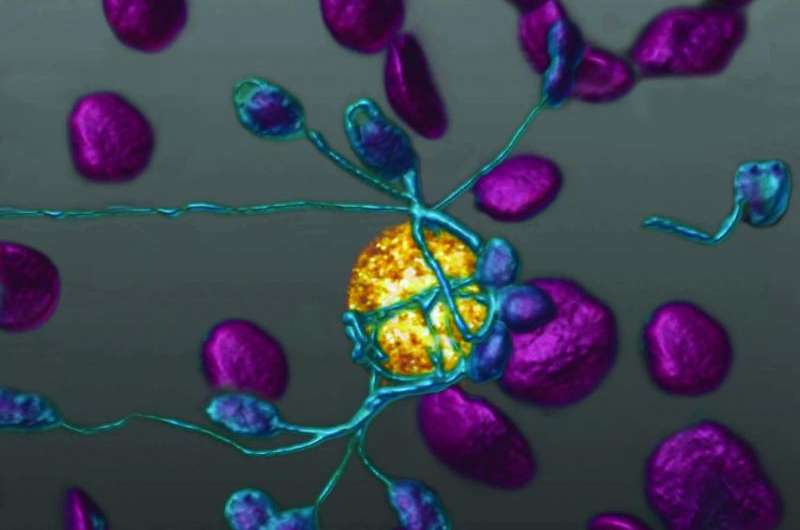Network of tubes plays a key role in plants' immune defense

Chloroplasts, better known for taking care of photosynthesis in plant cells, play an unexpected role in responding to infections in plants, researchers at UC Davis and the University of Delaware have found.
When plant cells are infected with pathogens, networks of tiny tubes called stromules extend from the chloroplasts and make contact with the cell's nucleus, the team discovered. The tubes likely deliver signals from the chloroplast to the nucleus that induce programmed cell death of infected cells and prepare other cells to resist infection. The work is published online June 25 in the journal Developmental Cell.
"This opens a new area of understanding how the chloroplast communicates with the nucleus, and likely with other organelles within the cell," said Savithramma Dinesh-Kumar, professor of plant biology at UC Davis and senior author on the paper.
Chloroplasts in neighboring uninfected cells also produce stromules, apparently signaling the nucleus to switch on genes that make cells more resistant to infection. The overall effect is to wall off and contain an infection, Dinesh-Kumar said.
Stromules were first described more than 50 years ago, but until now their role in a specific biological process has remained a mystery.
Mammalian cells lack chloroplasts but do have mitochondria, which play a role in cellular suicide. Exactly what chloroplasts, do other than photosynthesis, has been largely ignored, Dinesh-Kumar said. But it's clear that they are "powerhouses" producing molecules for the rest of the cell.
More information: Developmental Cell,
Journal information: Developmental Cell
Provided by UC Davis
















